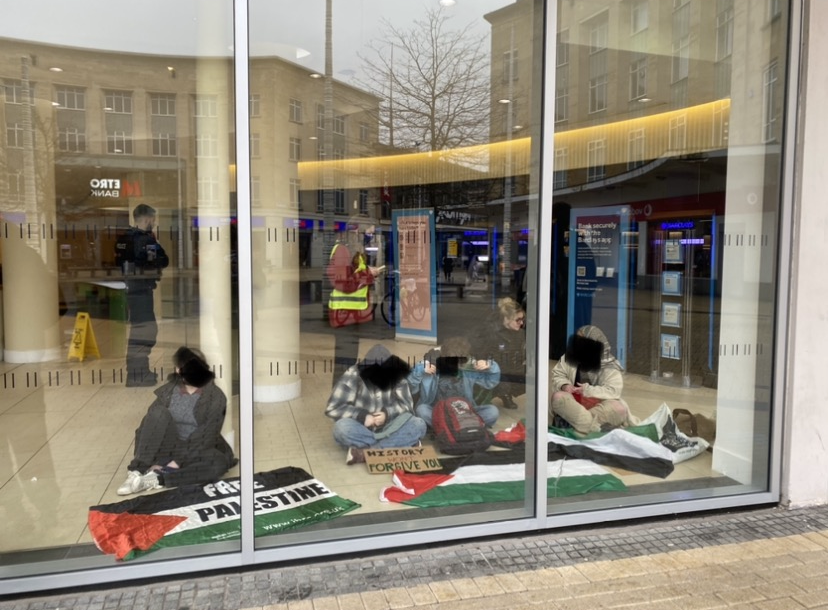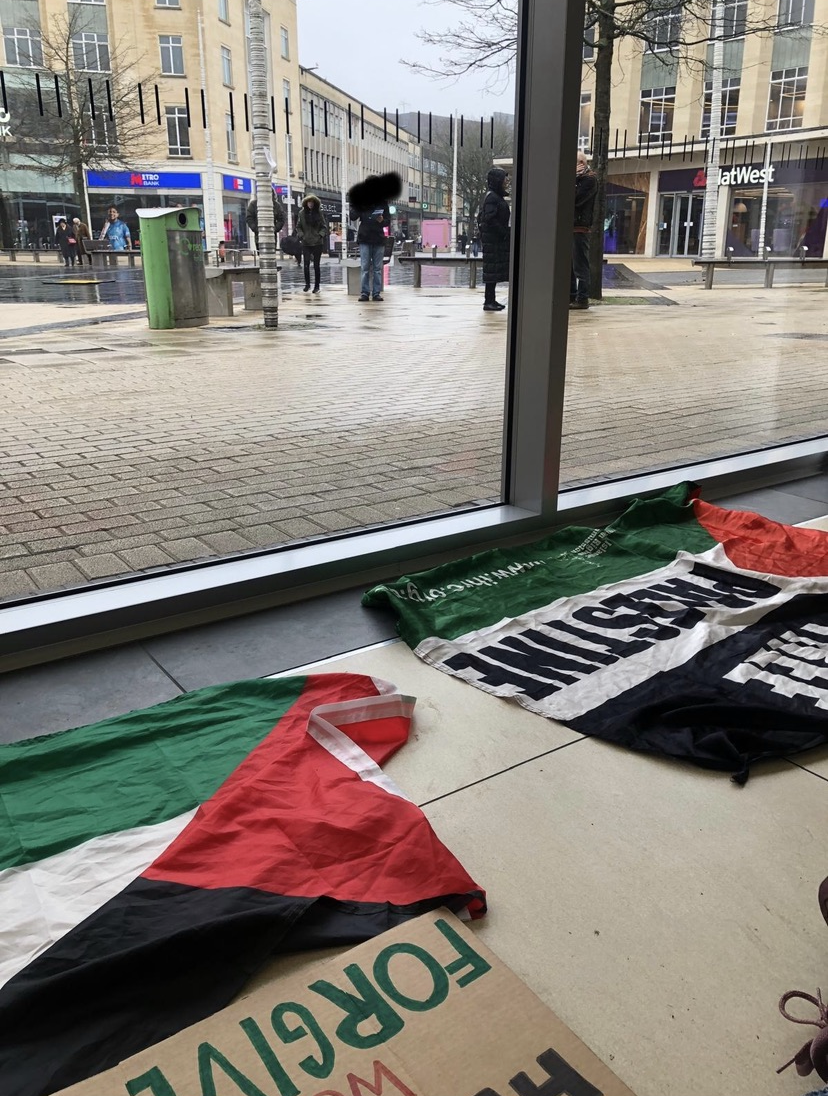A pious Sunday school teacher confessing to lust in his heart but swearing never to lie, he came to Washington to reestablish public faith in government just when popular disgust at monstrous U.S. crimes in Indochina had reached unprecedented heights. The big business agenda during his term in office (1977-1981) was to roll back the welfare state, break the power of unions, fan the flames of the Cold War to increase military spending, engineer tax breaks for wealthy corporate interests, and repeal government regulation of business. While portraying himself as a peanut-farming populist, Carter delivered the goods for Wall Street.
Having run as a Washington “outsider,” he immediately filled his administration with Trilateral Commission members, hoping that a coterie of Rockefeller internationalists could resurrect the confidence of American leaders and enrich business relations between Japan and the United States.
His Secretary of State was Cyrus Vance, a Wall Street lawyer and former planner of the Vietnam slaughter. Secretary of Defense Harold Brown was Lyndon Johnson’s Air Force Secretary and a leading proponent of saturation bombing in Vietnam. Secretary of the Treasury Michael Blumenthal was the standard rich corporation president. Attorney General Griffen Bell was a segregationist judge who disclosed that he would request “inactive” status as a member of Atlanta clubs closed to blacks and Jews [Carter himself stated that housing should be segregated]. Energy coordinator James Schlesinger was a proponent of winnable nuclear war. Transportation Secretary Brock Adams was a staunch proponent of Lockheed’s supersonic transport. National security adviser Zbigniew Brzezinski was an anti-Soviet fanatic who said in an interview with the New Yorker that it was “egocentric” to worry that a nuclear war between the U.S. and U.S.S.R. would entail “the end of the human race.” Since it was unlikely that every last human being would perish in such event, Brzezinski recommended that critics of U.S. nuclear policy abstain from narcissistic concern for the mere hundreds of millions of people who would.
In what William Greider, author of Secrets of the Temple (a study of the Federal Reserve Bank), called his most important appointment, Carter named Paul Volcker to chair the Federal Reserve Bank. Stuart Eizenstat, Carter’s assistant for domestic affairs said that, “Volcker was selected because he was the candidate of Wall Street.” The Wall Street agenda became clear when Volcker contracted the money supply and declared, “the standard of living of the average American has to decline.”
Wealth was funneled upward and wages and production declined. Unemployment and bankruptcy rose, unions shriveled and disappeared, Pentagon spending soared. For the first time ever American white collar families couldn’t save money. With urban housing costs zooming, workers fled to remote suburbs, but the increased commute expenses tended to cancel out cheaper mortgages. Moonlighting and overtime work increased, but added income disappeared in eating out, second commutes, and hired child care. As the cost of necessities outpaced wage gains, only credit cards could fill the widening gap. Hamburger stands and nursing homes proliferated while well-paid manufacturing jobs fled to the Third World. The workforce of the future was said to be a generation of super-efficient robots.
Carter’s populist assurances simply whetted the public appetite for this kind of dismal anticlimax. While making a few listless gestures towards blacks and the poor, he spent the bulk of his energy promoting corporate profits and building up a huge military machine that drained away public wealth in defense of a far-flung network of repressive “friends” of American business.
The heaviest applause line in his Inaugural Address was his promise “to move this year a step towards our ultimate goal – the elimination of all nuclear weapons from this Earth.” But after his beguiling rhetoric faded away, he embarked on a program of building two to three nuclear bombs every day. Although he had promised to cut military spending by $5 to $7 billion, he decided to increase it after just six months in office, and his 5% proposed spending increases in each of his last two years in office were identical to those first proposed by Ronald Reagan. Furthermore, having pledged to reduce foreign arms sales, he ended up raising them to new highs, and after speaking of helping the needy, he proposed cutbacks in summer youth jobs, child nutrition programs, and other popular projects serving important social needs. Similarly, though he had campaigned as a friend of labor, he refused a request to increase the minimum wage and opposed most of organized labor’s legislative agenda while handing out huge subsidies to big business. He made much ado about “human rights,” but returned Haiti’s fleeing boat people to the tender care of “Baby Doc” Duvalier, and when a member of the American delegation to the U.N. Human Rights Commission spoke of his “profoundest regrets” for the C.I.A.’s role in General Pinochet’s bloodbath in Chile, Carter scolded him, insisting that the C.I.A.’s actions were “not illegal or improper.”
Carter came to Washington proclaiming his desire for a comprehensive Middle East peace, including a solution to the Palestinian question “in all its aspects.” Yet at Camp David he failed to grasp the root of the problem, let alone propose a mature way of dealing with it. He assumed that Palestinians were anonymous refugees whose nationalist aspirations could be safely ignored. He supposed a peace treaty could be signed in the absence of the PLO, world recognized as the Palestinians’ “sole legitimate representative.” He offered no apologies for negotiating an agreement that failed even to mention Jewish settlements in the West Bank, the Gaza Strip, and the Golan Heights. He did not protest Prime Minister Menachem Begin’s presentation of the Accords before the Israeli Knesset as a “deal,” one much more favorable to Israel than to “the Arabs.” He pretended not to notice that corralling Palestinians into Bantustans was not simply a tactic of war, but constituted Israel’s boasted final product of “peace”! Finally, his much praised Camp David accords were the death warrant for Lebanon, as Israel, its southern border secure with the removal of Egypt from the Arab military alliance, was freed to concentrate undivided attention on a long-planned invasion across its northern border. It was this invasion (June 1982) that convinced Osama bin Laden that only mass murder of Americans could ever change U.S. foreign policy.
Carter was effusive in his praise and blind support of the Shah of Iran, who was deeply unpopular in his country due to policies of super-militarization, forced modernization, and systematic torture. By the time Carter arrived in the White House the Shah’s throne sat atop a veritable powder keg. Iranian cities were hideously unlivable with fifteen percent of the entire country crowded around Teheran in shanty dwellings lacking sewage or other water facilities. The nation’s incalculable oil wealth reached few hands and a restless student generation had no prospects. The country’s bloated bureaucracy was totally corrupt. While Shiite leaders rallied popular support, the Shah’s secret police threw tens of thousands of Iranians into jail, the economy gagged on billions of dollars of Western arms imports (mostly from Washington), and Amnesty International speculated that Iran had achieved the worst human rights record on the planet. Meanwhile, Carter declared that “human rights is the soul of our foreign policy,” though he added the following day that he thought the Shah might not survive in power, a strange expectation if indeed the U.S. stood for human rights around the world.
After the Shah was overthrown, Carter could not conceive of U.S. responsibility for the actions of enraged Iranian students who seized 66 Americans and held them hostage at the U.S. Embassy in Teheran, demanding the return of “the criminal Shah.” (He had admitted the Shah to the U.S. for emergency medical treatment for cancer, thus precipitating the “hostage crisis.”) To Carter, Americans were by definition innocent, outside history, and he dismissed Iranian grievances against the U.S. as ancient history, refusing to discuss them. In his distorted mind, Iranians were terrorists by nature, and Iran had always been a potentially terrorist nation, regardless of what they had suffered at U.S. hands. In short, without the Shah, Carter regarded Iran as a land of swarthy and crazed medievalists, what Washington today calls a “rogue state.”
Having “lost” Iran, a key U.S. ally in the Middle East, along with military outposts and electronic eavesdropping stations used against the Soviet Union, the Carter administration began supporting Afghan Islamic fundamentalists, not making an issue of their having kidnapped the American ambassador in Kabul that year (1979), which resulted in his death in a rescue attempt. While U.S. officials condemned Islamic militants in Iran as terrorists, they praised them as freedom fighters in Afghanistan, though both groups drew inspiration from the Ayatollah Khomeini, who was, in the eyes of official Washington, the Devil incarnate. In a 1998 interview Carter’s national security adviser Zbigniew Brzezinski admitted that the U.S. had begun giving military assistance to the Islamic fundamentalist moujahedeen in Afghanistan six months before the U.S.S.R. invaded the country, even though he was convinced – as he told Carter – that “this aid was going to induce a Soviet military intervention.” Among the consequences of that policy were a decade-and-a-half of war that claimed the lives of a million Afghans, moujahedeen torture that U.S. government officials called “indescribable horror,” half the Afghan population either dead, crippled, or homeless, and the creation of thousands of Islamic fundamentalist warriors dedicated to unleashing spectacularly violent attacks in countries throughout the world.
The list of disastrous policies can go on. For example, Carter continued the Ford Administration’s policy of backing Indonesia’s occupation of East Timor, which killed tens of thousands of Timorese during Carter’s years in office, and roughly a third of the Timorese population overall between 1975 and 1979. In 1977-1978 while Indonesia engaged in wholesale destruction in the form of massive bombardment, wiping out of villages and crops, and relocation of populations to concentration camps, the Carter Administration extended the military and diplomatic support necessary to make it all possible. In late 1977 Washington replenished Indonesia’s depleted supplies with a sharp increase in the flow of military equipment (Jakarta used U.S.-supplied OV-10 Broncos, planes designed for counterinsurgency operations) encouraging the ferocious attacks that reduced East Timor to the level of Pol Pot’s Cambodia. In a 1979 interview with the New York Times Father Leoneto Vieira do Rego, a Portuguese priest who spent three years in the mountains of East Timor between 1976 and 1979, said that “the genocide and starvation was the result of the full-scale incendiary bombing . . . I personally witnessed – while running to protected areas, going from tribe to tribe – the great massacre from bombardment and people dying from starvation.” In May 1980 Brian Eads reported for the London Observer that “malnutrition and disease are still more widespread than in ravaged Cambodia.” Relating the comments of an official recently back from a visit to Cambodia, Eads added that “by the criteria of distended bellies, intestinal disease and brachial parameter – the measurement of the upper arm – the East Timorese are in a worse state than the Khmers.” Another stellar achievement of the “Human Rights” administration.
Furthermore, during Carter’s brief reign he ordered production of the neutron bomb (which his administration praised for “only” destroying people while leaving property intact), endorsed “flexible response” and “limited” nuclear war, lobbied for the radar-evading cruise missile, developed a rapid deployment force for instant intervention anywhere, enacted selective service registration in peacetime, and advocated the construction of first-strike MX missiles for use in a nuclear shell game along an elaborate system of underground railroad tracks proposed for the Utah desert. While lecturing the Soviets on human rights, he escalated state terror in El Salvador, crushed democracy in South Korea, gave full support to Indonesia’s near genocide in East Timor, and maintained or increased funding for the Shah, Somoza, Marcos, Brazil’s neo-Nazi Generals, and the dictatorships of Guatemala, Nicaragua, Indonesia, Bolivia, and Zaire. He refused to heed Archbishop Romero’s desperate plea to cut off U.S. aid to the blood drenched Salvadoran junta, and Romero was promptly assassinated. Furthermore, he said nothing at all when the London Sunday Times revealed that the torture of Arabs implicated “all of Israel’s security forces” and was so “systematic that it cannot be dismissed as a handful of ‘rogue cops’ exceeding orders.” And though he presented himself as sympathetic to those who had opposed the Vietnam war, he refused to pay reconstruction aid on the grounds that during the devastating U.S. attack on the tiny country, “the destruction was mutual.” (Try arguing that the Nazi invasion of Poland wasn’t a crime because “destruction was mutual.”)
Carter turned domestic policy over to Wall Street, refusing to increase the minimum wage and telling his Cabinet that increasing social spending “is something we just can’t do.” According to Peter Bourne, special assistant to the president in the Carter White House, he “did not see health care as every citizen’s right,” though every other industrial state in the world except apartheid South Africa disagreed with him. He understood that liberals desired it, but, Bourne notes, “he never really accepted it.” Instead, “he preferred to talk movingly of his deep and genuine empathy for those who suffered for lack of health care, as though the depth of his compassion could be a substitute for a major new and expensive government solution for the problem.” In point of fact, money can be saved under a government funded plan, but Carter was uninterested. He insisted on controlling business costs rather than providing universal coverage, neglecting to note that under Medicare – universal insurance for the elderly – administrative costs were a fraction of those charged under private HMOs.
Carter simply could not comprehend the vast unmet social needs that existed (and exist) in the United States. He thought there was a way to maintain a global military presence, balance the budget, and keep business costs low while adequately meeting social welfare needs via reorganizing programs. When his Secretary of Health, Education, and Welfare, Joe Califano informed him that without increased funding many welfare recipients would be worse off after any reorganization than before, Carter erupted: “Are you telling me that there is no way to improve the present welfare system except by spending billions of dollars? In that case, to hell with it!” In response to a comment that his denial of federal funding for poor people’s abortions was unfair, Carter summed up the political philosophy that rendered him hopelessly unprogressive: “Well, as you know, there are many things in life that are not fair, that wealthy people can afford and poor people cannot.”
Like political candidates who do their bidding.








